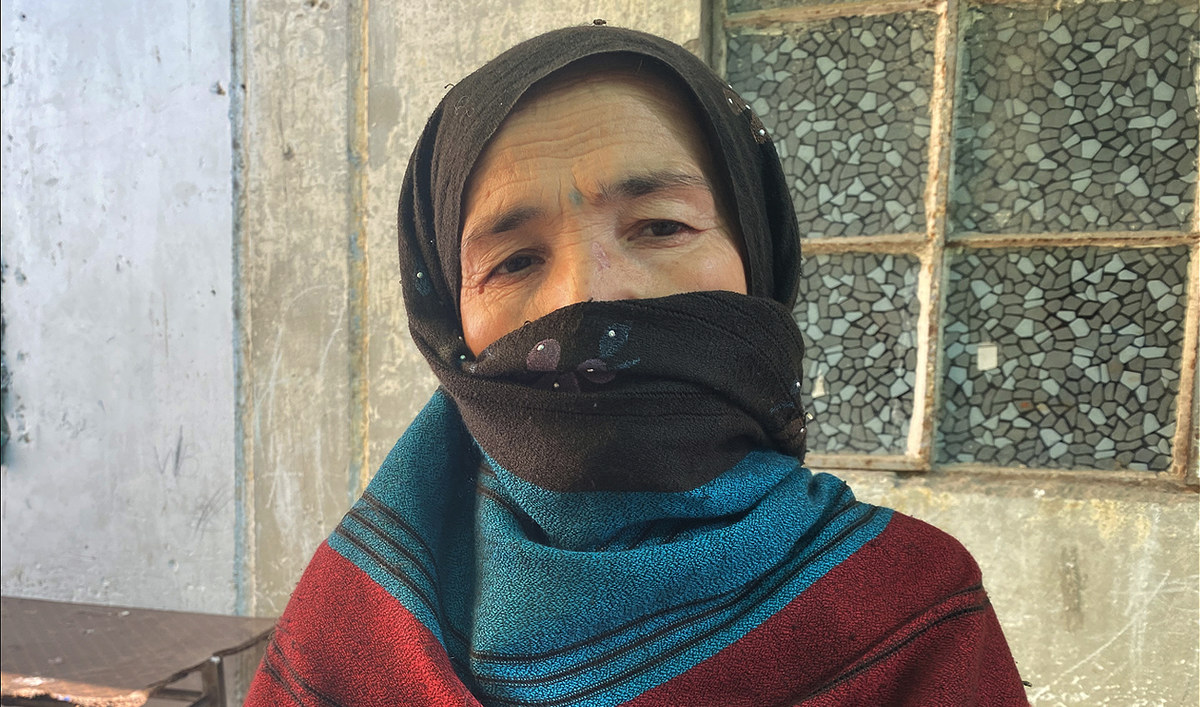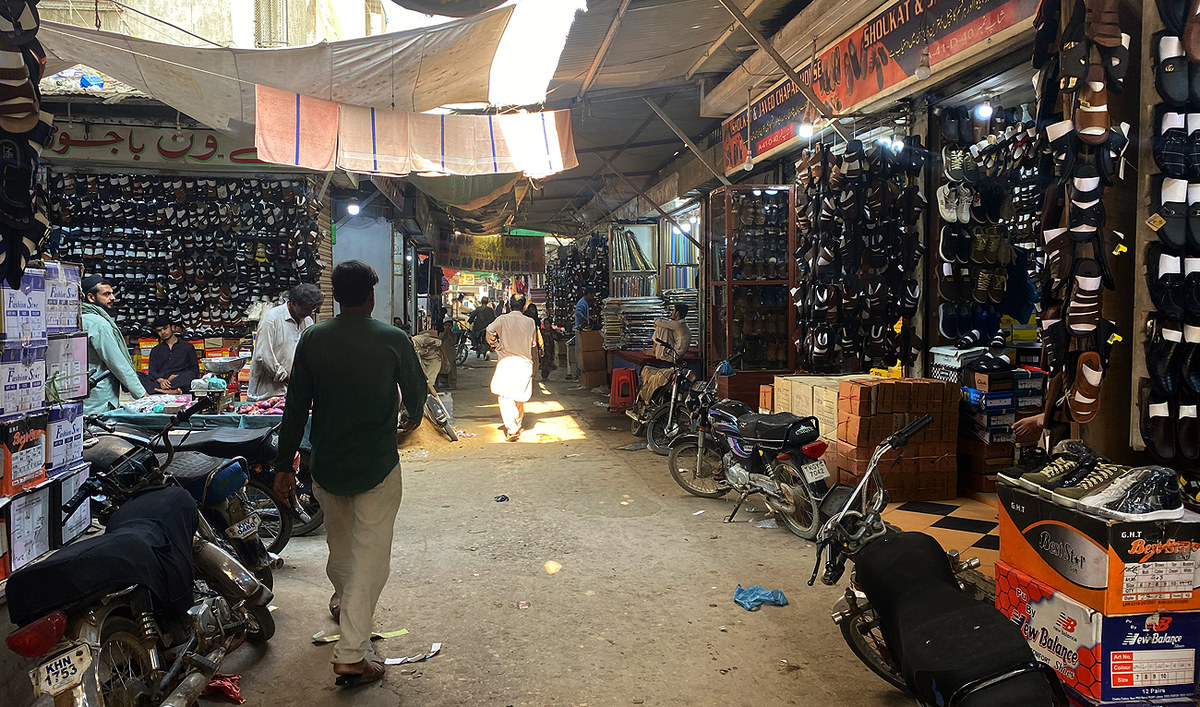KARACHI: It took Gul Bano, a former Afghan policewoman, and her family days of walking and sleepless nights under the open sky before they reached the southern Pakistani city of Karachi from Kabul in February last year. For her, the 51-year-old says, even recalling the woes of the month-long journey from her home country is “very painful.”
Bano is one of thousands of Afghans who illegally crossed the border to seek refuge in Pakistan after the Taliban seized control of Kabul in August 2021, following the withdrawal of United States and allied forces from Afghanistan.
Only a few hundred Afghans were able to get themselves registered with the UN refugee agency, United Nations High Commissioner for Refugees (UNHCR), in the process, while many still await their ‘Proof of Registration’ (PoR) cards that grant them the refugee status in Pakistan.
However, as relations between the new Taliban administration and Pakistan sour, mainly due to the former’s unwillingness to take action against the Pakistani Taliban, or the outlawed Tehreek-e-Taliban Pakistan (TTP), Pakistani authorities have launched a crackdown on Afghan nationals, who illegally entered Pakistan.
The last few months saw Pakistani authorities throwing hundreds of Afghan nationals behind the bars due to the status of their residency.
“It took a month for us to reach Karachi after walking for days and spending several nights near the border,” Bano told Arab News last week, wandering in a Karachi suburb seeking some money to feed her family of nine, including a widowed daughter and two grandchildren.
“I have served in the police for nine years. Many like me have gone missing. I cannot return to [Afghanistan], be disappeared or killed.”

Gul Bano, 51, a former Afghan policewoman, gestures for a photograph during an interview with Arab News in Karachi, Pakistan on February 24, 2023. (AN Photo)
Pakistan first opened its borders to Afghan refugees in the 1980s after the beginning of a US-sponsored and Pakistan-backed ‘Afghan jihad’ to counter the so-called expansionist designs of the former Soviet Union, becoming the largest refugee-hosting country in the world.
According to the UNHCR, more than 4.4 million Afghan refugees have returned to their homeland since 2002 under a UNHCR-assisted voluntary repatriation program, but around 1.4 million still live in refugee camps, villages and urban centers across Pakistan.
Mehmood Jan Babar, an expert on Afghan Affairs, said Pakistan had been the most generous host till 9/11, when the US began its ‘War on Terror.’
“Pakistan started taking steps like shortening the duration of stay of Afghan refugees, when the hostile government of Dr. Ashraf Ghani would take steps that would go against Pakistan,” Babar told Arab News.
“The Pakistani society has never been against refugees, but we instead have been seeing ‘Sanction Pakistan’ Twitter trends initiated from Afghanistan.”
Afghan refugees even used health and other facilities in Pakistan that were meant for locals only, he said.
Abdul Sayed, an independent scholar on jihadism, politics and security in the Afghanistan-Pakistan region, says the Pakistani state’s policy pertaining to Afghan refugees changed with changing narratives of successive governments in Islamabad. Pakistani governments had been using the issue to achieve strategic goals, he added.
“The government of Pakistan welcomed Afghan refugees for Pakistan’s national interests and also getting foreign aid,” Sayed told Arab News.
“After the withdrawal of the Russian forces from Afghanistan, the policy changed and the world has since witnessed ups and downs in policy [relating to] refugees, with ups and down in ties between [different] regimes in Islamabad and Kabul. This situation persists even after the Taliban’s takeover of Kabul.”
Hosting Afghan refugees had boosted strategic importance of Pakistan in the international politics and helped Islamabad get international financial support, Sayed added.
Mubeen Ahmedzai, 48, who sells roasted corn on a pushcart in Karachi’s Sohrab Goth neighborhood, often worries about the strained ties between the two neighbors that directly affect him.
“The attitude of police and locals [has] changed,” he said, when asked if he had observed any difference lately.
At a news conference in December, Sharjeel Memon, information minister of Pakistan’s southern Sindh province where most of illegal Afghans refugees have been arrested, said the government apprehended only those Afghan nationals who did not have legal documents.
“If a person lives illegally in any country, the government takes action and deals with them according to the law,” Memon had said.
Moniza Kakar, a lawyer who campaigns for the release of Afghan nationals, said the change in policy had not only impacted those who had come to seek asylum or medical help, but also the ones with PoR cards.
“Of those [Afghans] arrested recently, at least 400 had PoR cards or valid documents issued by the UNHCR,” she said, adding that even Pakistani Pashtuns, who share the same language and traditions as Afghans, had to face harassment by authorities as a result of the latest crackdown.
Another Afghan national, Ahmed Rasheed, left his home country shortly after the fall of Kabul in August 2021.
Living in a Karachi suburb, Rasheed was registered by the UNHCR which means he cannot be deported, but the document handed to him was not enough for him to get a job to feed seven members of his family. He said he had left Afghanistan for the sake of pursuing his children’s education.
“Education, [which was] the foremost [requirement] has now become secondary as I am struggling to bring [home] two meals,” the 45-year-old said.
“If ties between governments are turning good or bad, it has nothing to do with refugees. But they are not good [and] the immigrants have to bear the brunt.”
Rasheed lamented that everyone had rights, but “my human rights have gone missing.”
Qaiser Khan Afridi, a spokesperson for the UNHCR-Pakistan, said Afghans who fled to Pakistan in search of safety post-August 2021 were not able to regularize their stay, exposing them to risks of arrest, deportation and homelessness alongside lack of support to cover basic needs.
“We urge countries neighboring Afghanistan, including Pakistan, to continue to protect those seeking safety, as they have done for many decades,” Afridi told Arab News.
“As a country facing its own challenges, particularly since the devastating impact of the floods, Pakistan’s generosity must be matched with international responsibility-sharing by the wider world.”
Citing the Pakistani government, Afridi said some 600,000 Afghans had arrived in Pakistan since January 2021, however, the overall number of Afghan nationals with international protection needs was likely to be much higher.

This photo taken on February 24, 2023, shows a local market, Al-Asif Square, mostly populated with Afghan refugees, on the outskirts of Karachi. (AN Photo)
“Since 2021, UNHCR has been in discussions with the government on measures and mechanisms to support vulnerable Afghans. Regrettably, no progress has been made,” he added.
“UNHCR stands ready to work in collaboration with the Government of Pakistan to identify Afghans in need of protection and to seek solutions to their plight.”
















